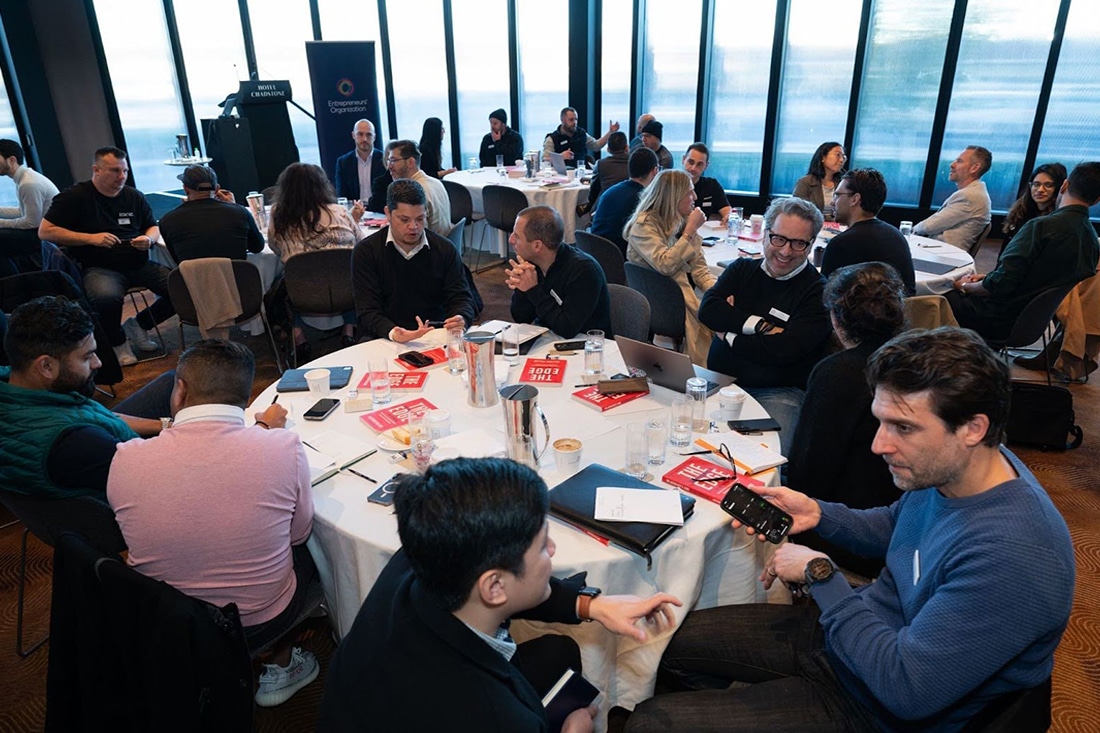The entrepreneurial networking industry is vast, spanning solo consultants bootstrapping their first ventures to seasoned CEOs running multi-million dollar enterprises. Each stage brings unique challenges, different networking needs and varying levels of resources to invest in professional relationships.
Here’s how five distinct networking organizations cater to businesses of different sizes.
For the startups and growing small businesses
Compare these groups to find the right networking fit for your growing organization.
SCORE: free mentorship for every business size
When just starting or working with limited resources, SCORE could be helpful. This nonprofit organization, backed by the U.S. Small Business Administration, connects entrepreneurs with volunteer mentors—and it doesn’t cost a dime.
SCORE works well for businesses in their early stages and has over 10,000 volunteer mentors across all 50 U.S. states and territories. Its mentors provide personalized guidance and understand the unique pressures of building something from nothing.
The organization also recognizes that small businesses require practical, actionable advice. For businesses still figuring out their market fit or working to reach that first million in revenue, SCORE provides support without the financial pressure.
Local Chamber of Commerce: community-rooted connections
The Local Chamber of Commerce tends to be a welcoming and surprisingly powerful resource for businesses that depend on local relationships. Chambers excel at serving small to medium-sized businesses within specific geographic markets.
Chambers’ focus on community involvement and local economic development makes them effective for smaller businesses. Rather than competing for attention with massive corporations, smaller businesses can shine within chamber networks.
The membership fees are typically modest, making this resource accessible to many businesses. Chambers understand that for many small businesses, success depends on local reputation and community connections.
For the million-dollar milestone and beyond
If your business has reached this milestone, it may be time to consider a larger networking group.
Entrepreneurs’ Organization (EO): the sweet spot for growing enterprises
Entrepreneurs’ Organization has carved out a unique niche in entrepreneurial networking: businesses that have proven their viability but still have significant growth ahead. Membership requires at least 1 million US dollars in annual revenue, and regional variations such as EO Australia and New Zealand set the bar at AUD$1.5 million. EO serves that crucial stage where entrepreneurs have had initial success but have room to grow.
This million-dollar threshold represents a business that has achieved product market fit, built systems and proven its sustainability. The confidential Forum groups of 8-12 entrepreneurs create an environment where leaders can discuss their unique challenges.
Tracy Angwin, a board member for the EO Sydney chapter, explains the significance: “EO’s Forum directly addresses the loneliness many entrepreneurs feel. It’s incredibly empowering to share your struggles and see that others have faced and overcome similar obstacles.”
EO aims to recognize that entrepreneurs at this stage face distinct pressures. They’re no longer just worried about making payroll, but about scaling culture, managing complex teams and navigating international expansion.
With nearly 20,000 members across more than 220 chapters, the organization’s global reach provides insights from entrepreneurs facing similar challenges worldwide. For businesses generating US$1 million in annual revenue, EO offers a balance of accessibility and ambition.
Vistage International: the executive coaching advantage
Vistage targets CEOs, presidents and business owners of small and midsize businesses with a focus on professional development and systematic growth. It combines peer learning with skilled facilitation.
A Vistage peer advisory group comprises 12-16 other CEOs or local business owners. Vistage offers a dual approach: monthly peer group meetings facilitated by experienced chairs combined with one-to-one executive coaching. This structure aims to benefit entrepreneurs who have built substantial businesses but want systematic approaches to scaling further.
For entrepreneurs who have achieved initial success but want to professionalize their approach to growth, Vistage offers structure and accountability.
For the elite achievers and industry giants
Once your business reaches a higher level, you may have a need for a different kind of networking group.
Young Presidents’ Organization (YPO): the pinnacle of executive networking
YPO represents the highest level of entrepreneurial networking. Membership requires leadership of companies with at least 50 full-time employees or $13+ million in annual revenue (depending on industry). YPO serves a unique group of high-achieving executives under 45.
It aims to create an environment where members face similar high-stakes challenges. When owners run a $50 million company, their problems fundamentally differ from those of a $5 million business. YPO members deal with issues like public company governance, complex regulatory environments and managing hundreds or thousands of employees.
YPO’s value proposition lies in its global network of over 35,000 chief executives from more than 140 countries. The organization’s peer forums provide confidential environments where members can discuss strategic decisions. For entrepreneurs who have achieved substantial scale, YPO offers access to a brain trust of peers operating at similar levels of complexity and responsibility.
The Business Network International (BNI) alternative
See if the BNI model is right for your business.
BNI: A referral organization for service-based businesses
Business Network International operates on a different model. It’s less about business size and more about referral potential. With over 330,000 members across 11,000 chapters globally, BNI focuses on generating qualified referrals through weekly meetings.
BNI works well for service-based businesses of any size that depend on local or regional referrals. The organization’s “Givers Gain” philosophy creates an approach to referral generation that can benefit small to medium-sized businesses. What matters isn’t revenue but the ability to give and receive quality referrals within your local market.
The weekly meeting structure and membership by profession within each chapter create accountability and consistent relationship building. For businesses based on referrals, BNI provides a networking approach focused on measurable business outcomes.
Finding Your Perfect Fit
Networking needs will evolve as a business grows, and a group that serves a business well today might not be the right fit in five years. Entrepreneurs can view business networking groups as strategic tools that should align with their current challenges and aspirations.






